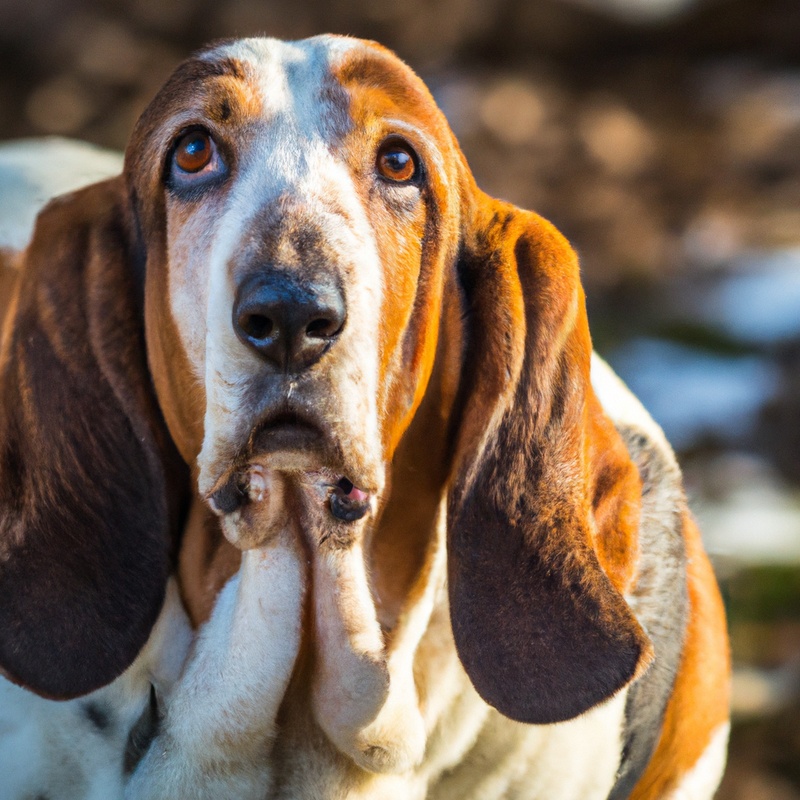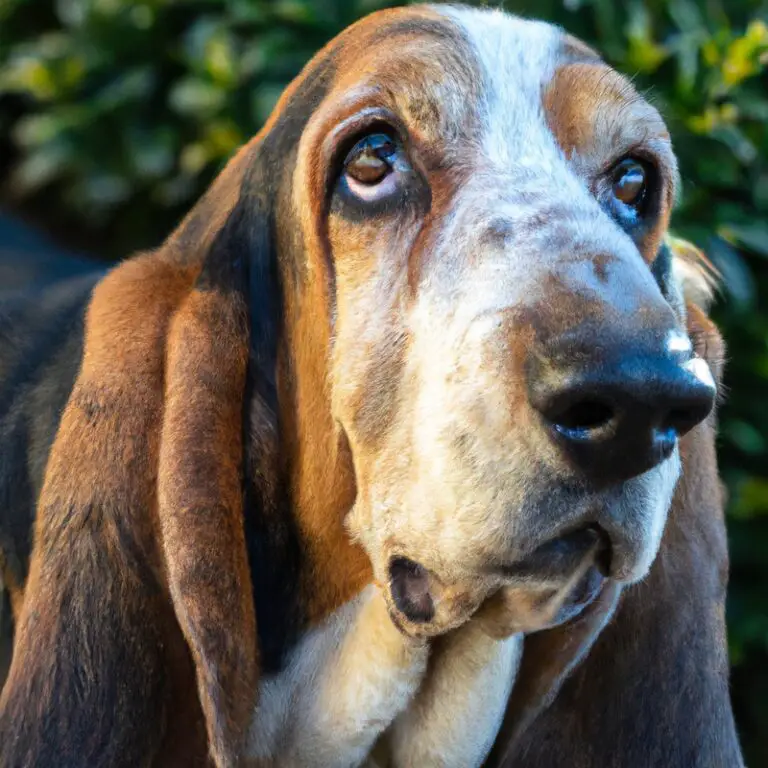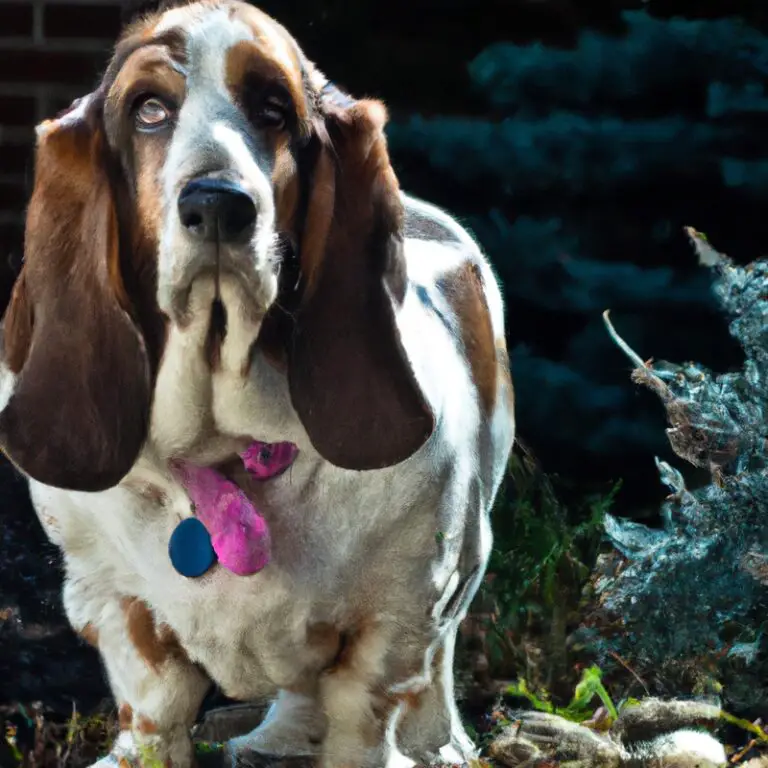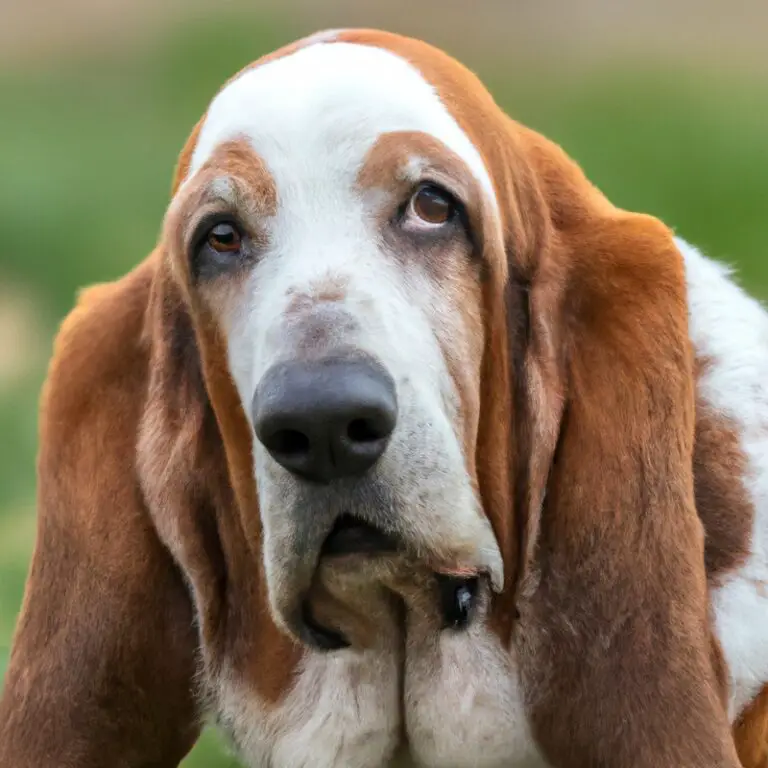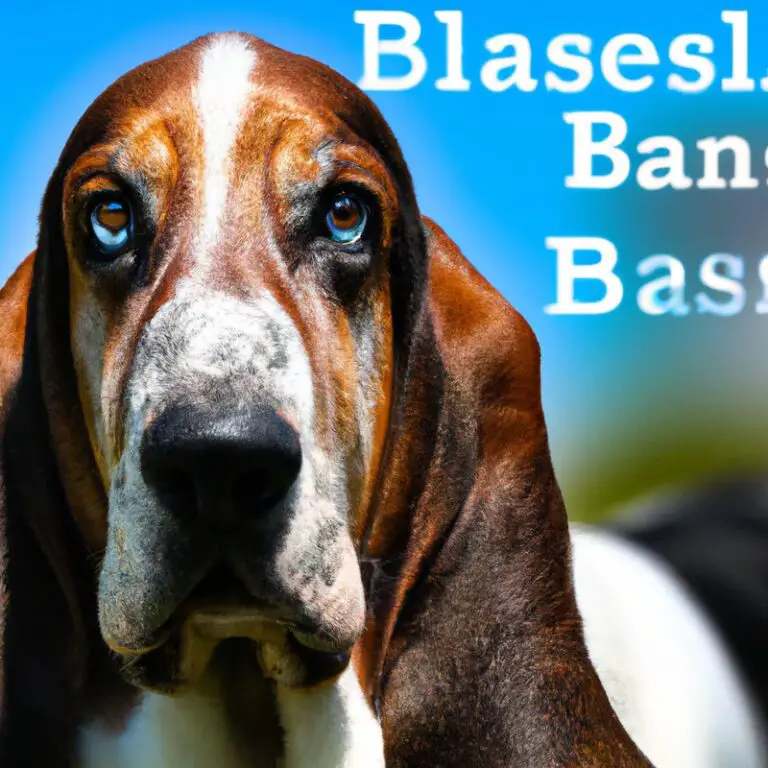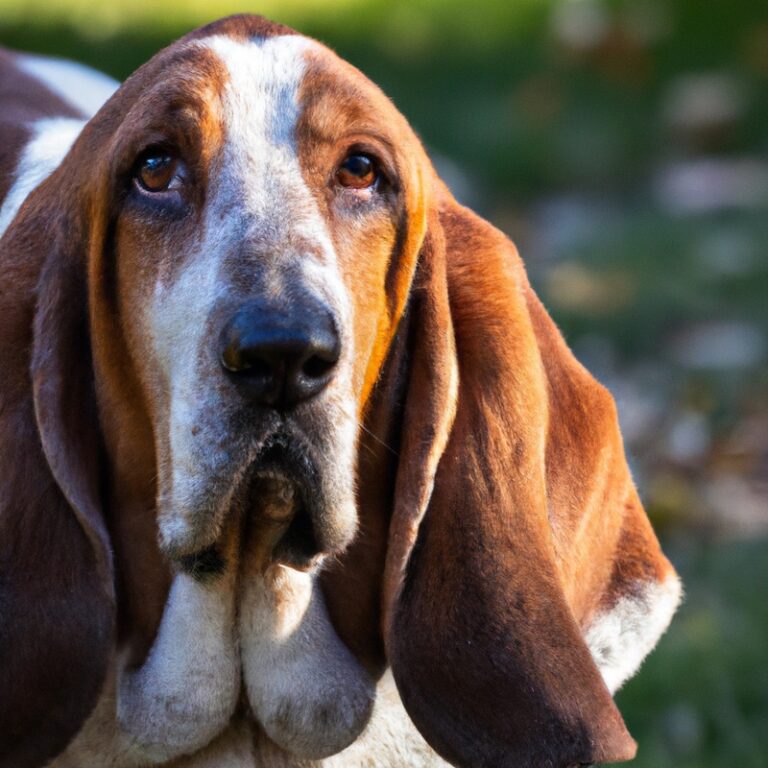How Do Basset Hounds Behave Around Unfamiliar Dogs?
Key Takeaways:
- Basset Hounds tend to be friendly and sociable with unfamiliar dogs.
- They may display submissive behavior when interacting with unfamiliar dogs.
- Basset Hounds generally get along well with other canine companions.
- Proper socialization and positive experiences are key to ensure good behavior around unfamiliar dogs.
Are you curious about how Basset Hounds behave around unfamiliar dogs?
Well, let me spill the beans! As an expert in dog behavior, I’m here to shed some light on the topic.
Basset Hounds, with their long ears and droopy eyes, have a unique temperament that can influence their interactions with other canines.
From their pack mentality to their sensitivity to smells, these adorable pooches have some interesting quirks.
In this article, we’ll explore their initial reactions, body language, and possible behaviors when encountering unfamiliar dogs.
Plus, I’ll share some tips on managing and understanding their behavior.
So, let’s dive in and discover the fascinating world of Basset Hound behavior!
Below is a table that describes the typical behavior of Basset Hounds around unfamiliar dogs:
| Behavior | Description |
|---|---|
| Friendly | Basset Hounds are generally friendly and sociable with unfamiliar dogs. |
| Curious | They may display curiosity and explore their surroundings when encountering unfamiliar dogs. |
| Calm | Basset Hounds tend to be calm and non-threatening around unfamiliar dogs. |
| Greeting | They may approach other dogs in a friendly manner, often with a wagging tail. |
| Submissive | They may exhibit submissive body language, such as a lowered head or body, to show deference to other dogs. |
| Avoidance | In some cases, Basset Hounds may prefer to avoid confrontation or conflict with unfamiliar dogs. |
Understanding Basset Hound Behavior
Basset Hound Temperament
Basset Hounds have a friendly and easygoing temperament. They are known for being gentle and affectionate.
These dogs are generally good-natured and get along well with other pets and children.
Bassets can be a bit stubborn at times, but they are also clever and eager to please. Keep in mind that every dog is an individual, so there may be some variations in temperament.
Bassets Hounds’ Pack Mentality
Basset Hounds display a strong pack mentality.
This means they have a natural inclination to form close bonds and seek companionship with other dogs.
They are known for their sociable and friendly nature, enjoying the company of both familiar and unfamiliar dogs.
Basset Hounds thrive in a pack environment and often feel more secure and confident when they are part of a group.
This pack mentality can influence their behavior around unfamiliar dogs, as they may be more inclined to approach and interact with them in a friendly manner.
It’s important to consider this aspect of their temperament when introducing them to new canine companions.
Bassets Hounds’ Sensitivity to Smells
Basset Hounds have an incredible sensitivity to smells. Their long ears and droopy skin help capture scents, making them excellent trackers.
They are known for their keen sense of smell, which is even more powerful than other dog breeds.
This heightened sense of smell can make them easily distracted during walks or training sessions, as they are constantly following different scents. It’s important to be patient with them and understand that their nose often takes the lead in their behavior.
Behaviors of Basset Hounds around Unfamiliar Dogs
Initial Reactions
Basset Hounds may display various initial reactions when encountering unfamiliar dogs.
Their response can vary depending on the individual dog and the circumstances.
Some Basset Hounds may approach with curiosity and friendliness, while others may be cautious or even aloof.
It’s important to monitor their body language and behavior during this initial interaction to assess their comfort level.
Keep in mind that every dog is unique, and their initial reactions may differ from one another.
Gradual introductions and positive reinforcement can help facilitate a more positive interaction.
Observing Body Language
Observing body language is key when it comes to understanding how Basset Hounds behave around unfamiliar dogs. Pay attention to their posture, facial expressions, and tail movements.
A relaxed body posture and wagging tail often indicate friendliness, while a tense body, raised hackles, or a tucked tail suggest discomfort or aggression.
Look for signs of dominance or submission, such as mounting or rolling over. It’s important to remember that each dog is unique, and individual behaviors can vary.
So, take the time to observe and interpret your Basset Hound’s body language in different situations for a better understanding.
Possible Behaviors
Basset Hounds may exhibit a range of behaviors when encountering unfamiliar dogs.
Some possible behaviors include:
- Curiosity: Bassets are naturally curious and may approach unfamiliar dogs with interest.
- Timidity: These dogs can be on the shy side, and may exhibit timid behavior around unfamiliar dogs.
- Defensive: In some cases, Bassets may become defensive or territorial if they feel threatened.
- Playful: Bassets are generally friendly and sociable, so they may exhibit playful behavior towards unfamiliar dogs if they feel comfortable.
- Aggression: Although rare, some Bassets may show aggression towards unfamiliar dogs, typically due to fear or lack of socialization.
Overall, it’s important to observe and understand your Basset’s body language and provide positive reinforcement during interactions with unfamiliar dogs.
Tips to Manage Basset Hound Behavior around Unfamiliar Dogs
Socialization Training
To ensure that your Basset Hound behaves well around unfamiliar dogs, socialization training is key. It helps your dog become comfortable and confident in various situations.
The goal is to expose your Basset Hound to different dogs, environments, and people from an early age.
This can include puppy classes, visits to the park, and regular interactions with other dogs. Positive reinforcement is crucial during this training process, rewarding your dog for calm and friendly behavior.
Controlled introductions and consistent communication also play a role in managing your Basset Hound’s behavior around unfamiliar dogs.
Positive Reinforcement
Positive reinforcement is a powerful tool when it comes to managing Basset Hound behavior around unfamiliar dogs.
By using positive reinforcement, I can encourage and reward good behavior from my Basset Hound, which helps them feel more confident and comfortable around other dogs.
This can be as simple as giving treats and praise when my Basset Hound remains calm and friendly during interactions.
With consistent positive reinforcement, my Basset Hound learns that good behavior leads to positive outcomes, creating a more positive experience for everyone involved.
Controlled Introductions
Controlled introductions are key when it comes to managing your Basset Hound’s behavior around unfamiliar dogs. Start by selecting a calm, neutral location for the meeting.
Keep your Basset Hound on a leash and introduce them to the other dog slowly.
Watch their body language closely for signs of anxiety or aggression. Gradually increase their exposure to other dogs over time, always providing positive reinforcement for good behavior.
Consistent and clear communication is essential during these introductions to ensure a smooth interaction between your Basset Hound and the unfamiliar dog.
Consistent and Clear Communication
Consistent and clear communication is key when managing the behavior of your Basset Hound around unfamiliar dogs. Be sure to use a firm but calm tone of voice when giving commands, and use consistent cues and gestures to reinforce your messages.
Avoid using harsh or aggressive language, as this can confuse or frighten your dog.
Remember to reward your Basset Hound with praise and treats when they exhibit desired behavior around unfamiliar dogs. This will help them understand what is expected of them and encourage positive interactions.
Factors that Influence Basset Hound Behavior around Unfamiliar Dogs
Breed Traits
Basset Hounds have certain breed traits that can influence their behavior around unfamiliar dogs. These traits include their laid-back and easygoing nature, as well as their strong sense of smell.
Bassets are generally friendly and sociable, but they may be less inclined to engage in energetic play with other dogs.
It’s important to remember that individual Bassets may exhibit unique behaviors, so it’s crucial to observe and understand your dog’s specific traits and temperament. Socialization, training, and positive reinforcement can help manage their behavior around unfamiliar dogs.
Past Experiences
Past experiences play a significant role in shaping a Basset Hound’s behavior around unfamiliar dogs.
If a Basset Hound had positive interactions with other dogs in the past, they are likely to be more open and friendly.
Conversely, if they had negative experiences, they may exhibit fear or aggression.
It’s important to consider a Basset Hound’s past experiences when assessing their behavior and to provide proper socialization and training to help them feel comfortable and confident around unfamiliar dogs.
Existing Training and Socialization
Existing training and socialization play a significant role in shaping a Basset Hound’s behavior around unfamiliar dogs. Training helps them understand how to interact appropriately and respond to cues.
It teaches them to be calm and confident, reducing the likelihood of aggressive or fearful behavior.
Socialization exposes Basset Hounds to various dogs and situations, allowing them to learn how to navigate new encounters. It builds their confidence and teaches them how to communicate effectively.
Proper training and socialization early on can greatly impact a Basset Hound’s behavior around unfamiliar dogs.
Final Verdict
Understanding Basset Hound behavior around unfamiliar dogs is essential for responsible dog owners.
Basset Hounds have a unique temperament, including a pack mentality and sensitivity to smells, which can influence their interactions with other dogs.
By paying attention to their initial reactions, observing body language, and being aware of possible behaviors, we can manage their behavior effectively.
Socialization training, positive reinforcement, controlled introductions, and consistent communication are all key strategies to ensure harmonious interactions.
By considering breed traits, past experiences, and existing training, we can create a safe and positive environment for our Basset Hounds around unfamiliar dogs.
Trust me, with the right approach and understanding, your Basset Hound can thrive in social situations.

